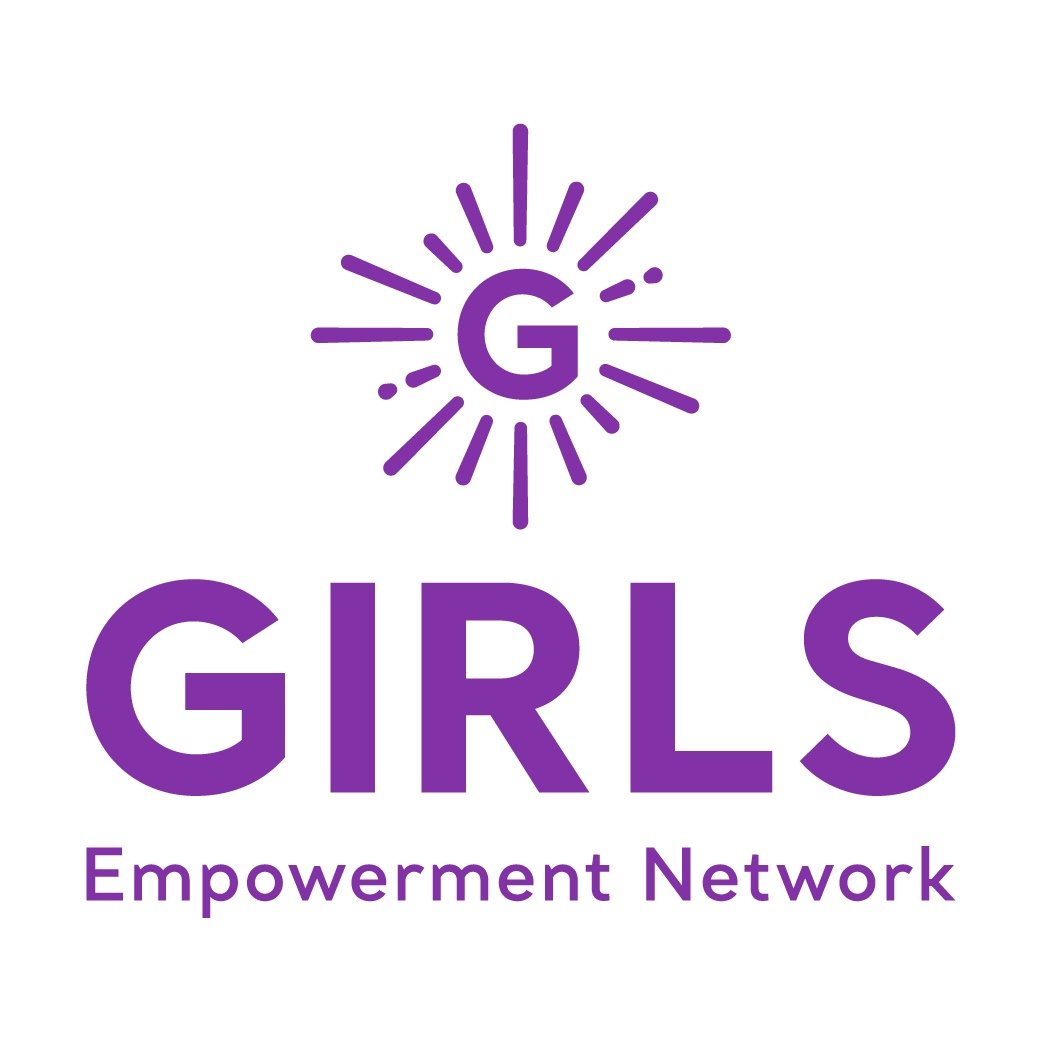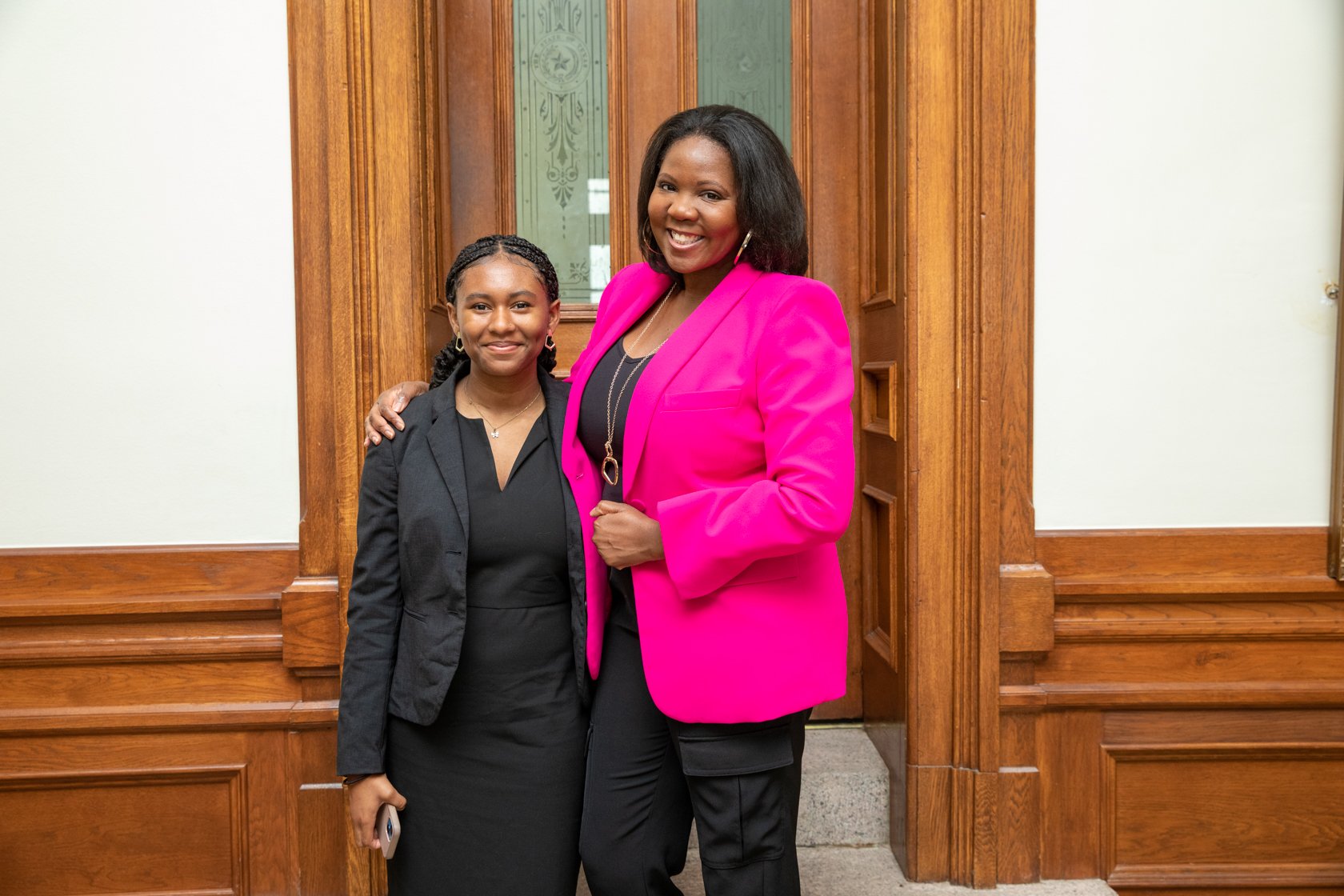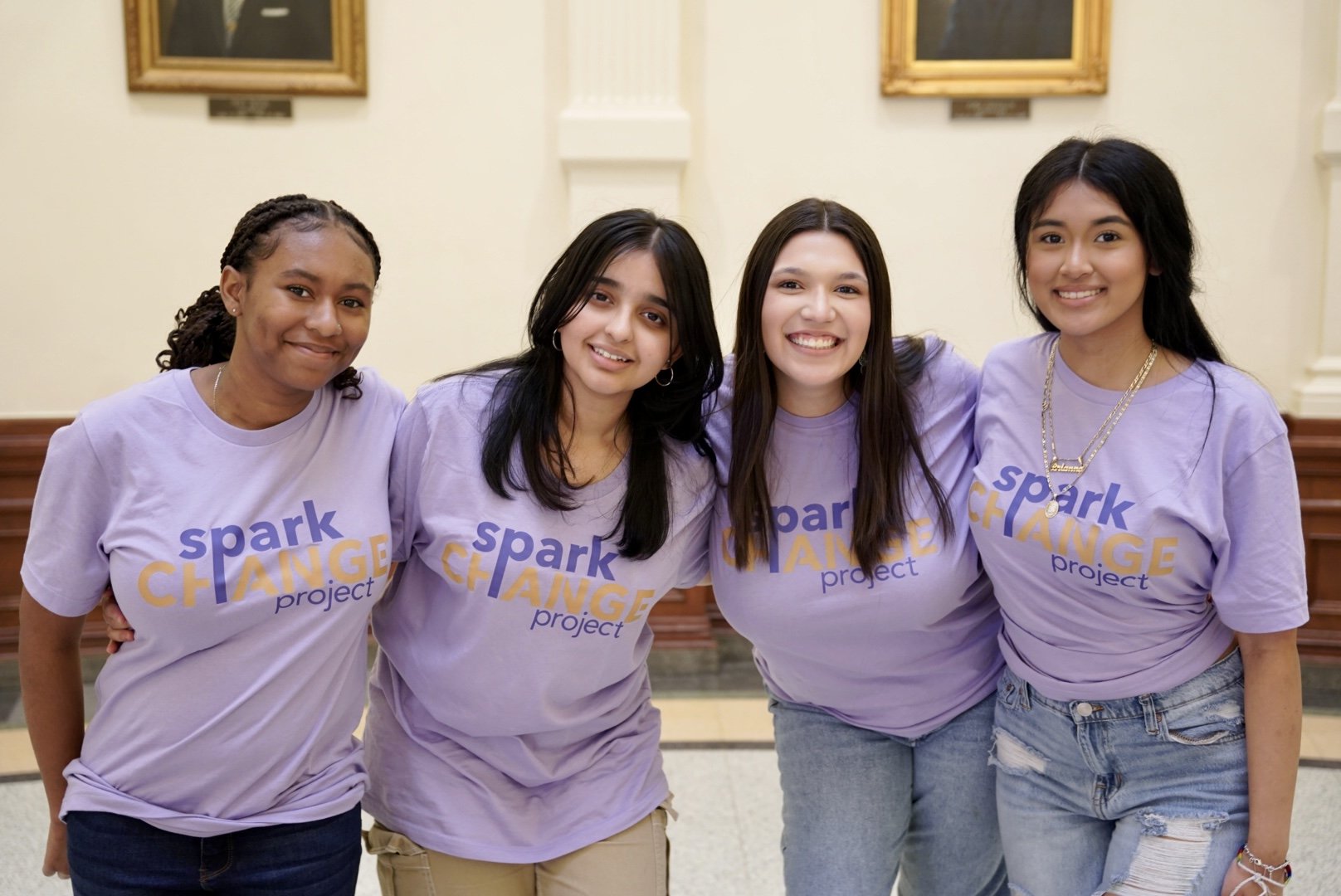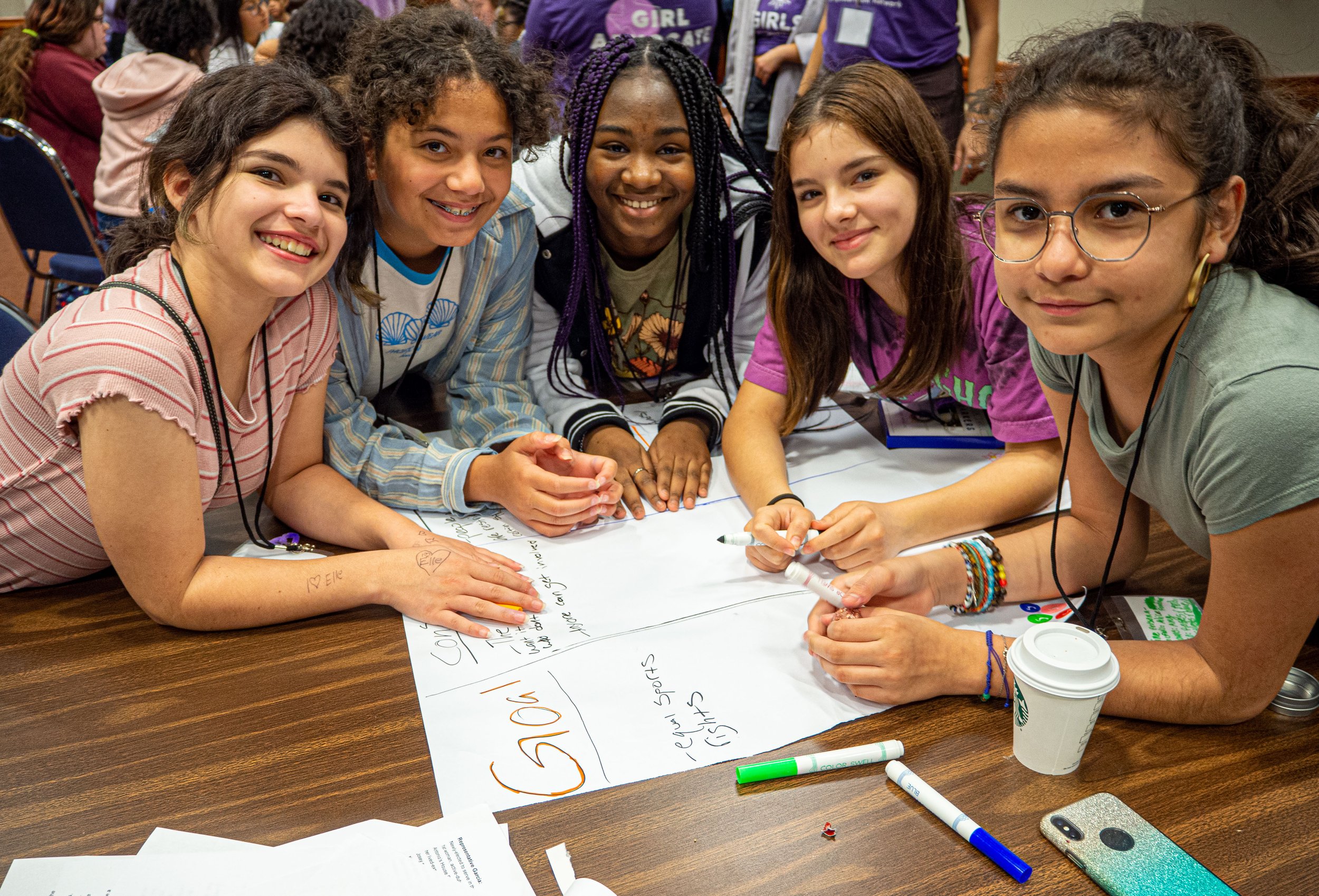Our Policy Priorities are Driven by the Girls We Serve
Determining our policy Priorities
Our policy priorities are driven by the girls we serve. We seek to equip youth with civic knowledge, advocacy skills, and a critical awareness of how their voice can contribute to social change. By listening intently to youth stories of the issues they confront in their daily lives and partnering with them to find policy solutions, we hope our priorities reflect the lived experiences of youth today.
Policy Vision Statement
We center girls’ experiences and teach them the skills to speak truth to power.
We support policies that promote girls’ well-being so they can thrive in achieving their goals and advocating for a world where girls are unstoppable.
We use the following process on a biannual basis to determine our policy priorities.
The Spark Change Project peer facilitators, a cohort of five high school female activists of color, each choose a policy issue to focus on throughout their term. Across the Town Hall, Spark Change Day, and Spark Change Camp events, peer facilitators lead other youth in conversation about their area of expertise and learn how these issues are present throughout the community. Youth participants are asked about the most important issues in their communities, which helps us understand the broad array of challenges girls face today.
Using the list of issues generated through the Spark Change Project, we then survey our Girl Expert staff at Girls Empowerment Network to gain insight into the most important issues they see through their work with girls. Analyzing the relative ranking and frequency of the top issues from this process in 2021, we narrowed our platform to four priorities: 1) Mental Health, 2) Safe, Supportive School Environments, 3) Healthy Relationships, and 4) Equity Issues.
Read more about each of the policy priorities and how they align with our mission at Girls Empowerment Network.
-
Navigating the challenges that come with life are taxing for anyone, especially for adolescents and youth. Some young people are working through typical pressure that comes with growing up, while others feel the stress and fear that might come from economic or social events. Unfortunately, this leads to high rates of of depression, anxiety, and even suicidal ideation that we see for youth today. Over the last several years, the COVID-19 pandemic has exacerbated mental health challenges, especially for girls. Educators and mental health professionals in Texas are worried about what they are deeming the “second pandemic,” that of lingering fears, stress, and anxiety rooted in experiencing the impact of COVID.
Policymakers can mitigate the impact of mental health challenges by providing both the funding and the structures for early intervention supports and treatment options. It is crucial to build practices, policies, and systems that will reduce the possibility of harming the mental health of children and their families and to ensure that there are supports available for when harm does happen.
The work that Girls Empowerment Network does is rooted in igniting the power in girls. We do this by helping to build the Six Cs (collaboration, communication, critical thinking, creativity, coping skills, and confidence), among those confidence and coping skills. GIRLS advocates for a world in which girls and their families have the support that is necessary to navigate any challenges of mental health.
State of Girls Mental Health: Learn More
-
For many students, schools are considered a home away from home. For the first 18 years of their life, schools are places where they not only spend eight hours a day, five days a week, but spaces in which they form the first close bonds of their lives, as well as start to form their own identities. For students to develop in positive and healthy ways, schools need to be places where they feel welcomed, supported, and safe.
For this to happen, all adults within school buildings need to create environments in which culture and climate encourage relationship building, people feeling valued, and student academic and social emotional growth. Students should see themselves and the stories of their communities in what they learn. Schools should invite families to become collaborative members of the school community. Most of all, schools should be a place that heal and do not harm, especially when it comes to discipline and the school-to-prison pipeline.
Rooted in a history of housing and education segregation that create inequities in funding and personnel, this is not the case for many students, especially those of color and those with disabilities. Girls Empowerment Network recognizes this and knows that for the girls we serve to reach their full potential, state policy must work to strengthen the schools they go to, not continue to weaken them.
Learn More -
Having strong and healthy relationships can mean a happy, positive life. Most people do what they can to sustain the relationships in their lives that bring them joy and meaning. Learning how to build strong and healthy relationships, as well as identifying negative relationships, are skills that can be taught. It is critical that practices, policies, and systems regarding sexual education, family violence, and dating violence are structured to support this endeavor.
There were several bills filed in the regular session of the 87th Texas Legislature geared towards ensuring healthy relationships. Among these are bills for instruction in school as well as those aimed toward improving parenting skills. Unfortunately, many either did not pass the legislature or did not become law.
Much of the work of Girls Empowerment Network is tailored towards teaching girls how to build strong and positive relationships. The impact that GIRLS programming can be amplified if what girls are learning here is reinforced by other adults in their lives, including at school and at home. We advocate for policymakers to make these changes, as it will help in igniting the power in girls.
-
Every legislative session, the Texas Legislature takes up bills that, if passed and signed into law, can have a disproportionate impact on certain groups, mostly those who have been historically oppressed. These bills cast a partisan dim that attract significant opposition from those seeking to prevent harm to those groups. Examples from past sessions include the voter ID law in 2011, the abortion facilities law in 2013, the immigration sanctuary cities law in 2017, and the failed bathroom bill in 2019. Unfortunately, advocacy for such harmful policy follows whatever cultural issue is stoked at the national level.
With the 88th Legislative Session around the corner, we are monitoring a broad range of emerging equity issues and bills that have a disproportionate impact on women, students, and communities of color.
For Girls Empowerment Network to be at its most effective in helping girls learn how powerful they are, the organization must understand how issues of equity will have an impact on girls’ communities and on their ability to leverage their power.
Our Policy Journey
-
Since 2020, Girls Empowerment Network has hosted a Mental Health Policy Fellow through the Hogg Foundation’s generous award. This initiative has allowed us to build a sustainable foundation to support our advocacy work in partnership with the youth that we serve.
Vanessa Beltran, our first Policy Fellow, collaborated with our program team and community partners to create the curriculum for the Lead with Your Voice and Unstoppable Activist Spark Kits, which aimed to help girls develop critical self-awareness, gain confidence in their ability to exercise leadership, and apply key decision-making skills to generating progress on real-world issues affecting their communities. These activities continue to be used to train the Spark Change Project peer facilitators to do advocacy work.
In addition to serving on the leadership team of the Spark Change Project, Vanessa engaged in the 87th Texas Legislature by tracking bills related to youth mental health and preparing public testimony on bills related to topics like suicide prevention, trauma-informed active shooter drills, and protecting school counselors’ time to serve students. She also supported Spark Change Project peer facilitators in developing and delivering public testimony on issues that affect them and their community Vanessa and the Spark Change Project peer facilitators provided testimony on 17 occasions, with several peer facilitators stepping up for testimony on multiple distinct issues.
After the legislative session, Vanessa and her policy interns from the LBJ School of Public Affairs and Rice University conducted research on our newly defined policy priorities to begin preparing GIRLS to take on the 88th Legislative Session in 2023. She also provided key support in developing an advocacy manual, internal policies for tracking policy-related activities, and designing a timeline for the 2022-2024 Policy Fellow. In July 2022, Ana O’Quin joined our team as the next Mental Health Policy Fellow and will lead our advocacy programs for the 88th Texas Legislature and beyond.
-
A collaboration between Girls Empowerment Network and the Excellence and Advancement, the Spark Change Project’s mission is to center girls of color as leaders in advocacy, who discover their activist voices, and galvanize their peers to engage in their own passions for positive social change.
The Spark Change Project (SCP) empowers, inspires, and trains the next generation of female activists of color. SCP centers a small group of girls of color as leaders, who gain a part-time job, find their own activist voices, and galvanize a wider network of their peers to develop a policy agenda—through the delivery of a special Spark Change Day of advocacy in spring and a Spark Change Camp in summer. The Spark Change Project Facilitators will testify at the 2023 Texas legislative session and lead other youth grassroots advocacy projects. The Excellence and Advancement Foundation and Girls Empowerment Network piloted this program in January of 2021, and we will soon be recruiting for our third cohort of young activists.
Advocacy Stories From Our Blog
Texas 88th Legislative Session: Download the full Girls Empowerment Network Legislative Brief
Get Involved! Join our advocacy newsletter to stay engaged in our policy advocacy work.
“I loved talking about my topic because it’s something I’m very passionate about and I just felt like it was my time to shine and to get my voice heard…and to just overall help other [youth] speak out and to know that their voice matters…”










